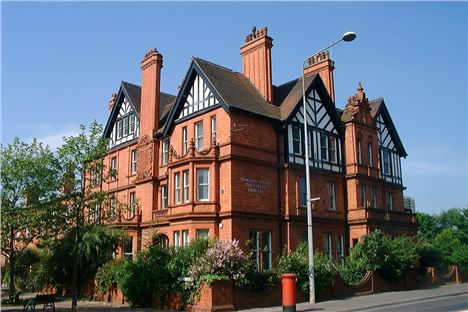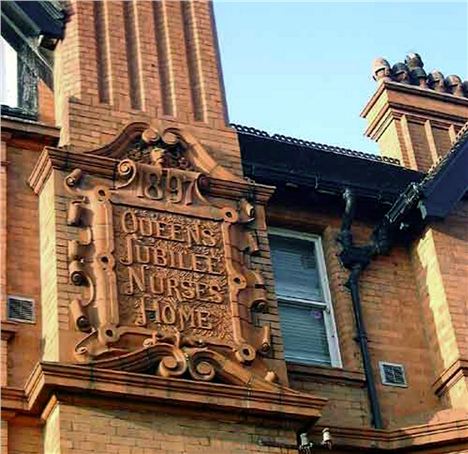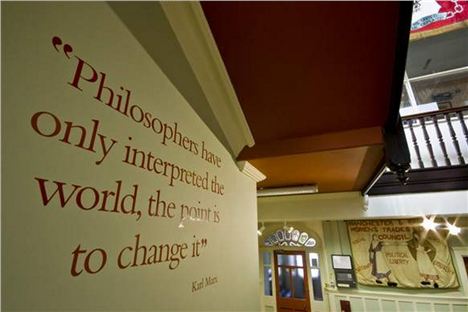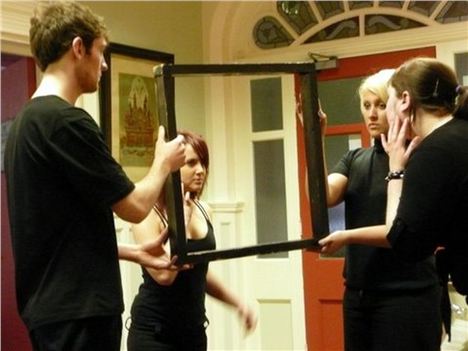ONE of Britain’s most important collections of working class history is about to celebrate its silver jubilee.
“Our founders started the Library in their own home, driven by the belief that working people should remember and value their own history.
The Working Class Movement Library in Salford was started in the 1950s as the personal collection of Ruth and Eddie Frow. The couple met in 1953 at a Communist Party day school on labour history and shared a love of labour movements, books and documents. By the late 1960s they had built up an enviable collection of works in their home in Stretford.
The collection soon became too big for their modest surroundings. Salford Council’s Director of Cultural Services Royston Futter met the Frows and almost immediately found Jubilee House, the ideal place for their collection, in the premises right next door to his office. He cajoled funds from the council to convert the building into a library and a flat for the Frows. In 1987 Jubilee House became the permanent home of the Frows’ collection with space for it to grow into possibly the best archive of working class history in the country.
Twenty-five years later, the Library is bigger than ever. More than 130,000 items fill its shelves, telling the story of Britain’s working classes from the beginning of industrialisation to the present day. The oldest items date from the 1760s, though the collection has been brought up to date with the archive of Jim Allen, the Manchester-born screenwriter who worked on Coronation Street and collaborated with film director Ken Loach.
In the 25 years since being installed in its current home, the Library has seen thousands of visitors cross its threshold. Researchers, actors, artists, students and even politicians have used it as an important resource to further their understanding of how working class culture shaped Britain today.
One week’s visitors included a professor who had come from Japan to research silk weavers’ unions, and a wrestler who needed help with his first writing project, the story of his mother’s growing up in Ancoats. On a visit in 2009, veteran MP Tony Benn called it “one of the greatest educational institutions in Britain”.
The 25th anniversary of the Library will be celebrated with a special exhibition charting the history of the collection, which opens on 6 November. The celebration will also coincide with the launch of the Library’s “future fund”. Money is desperately needed to make sure the Library can survive another 25 years. Council funding has been decreasing since Salford Council was forced to make savings because of government spending cuts, so the Library is launching a plea for help.
Library manager Lynette Cawthra said: “Our founders started the Library in their own home, driven by the belief that working people should remember and value their own history.
“Together they rescued countless items which would have otherwise been lost to the future. In these turbulent times, that history has never been more relevant – and the survival of the Library will depend on the generosity of our supporters”.
To find out more about how to donate, visit www.wcml.org.uk/appeal.
Working Class Movement Library, 51 The Crescent, Salford M5 4WX. Open Weds, Thurs and Fri afternoons. At other times visitors are welcome to make appointments to view or use the collection. Admission to the library is free.
The Library collection contains books, pamphlets, personal archives, photographs, plays, poetry, songs, banners, posters, badges, cartoons, journals, biographies, newspaper reports and more. They tell the story of Britain's working classes from the earliest days of industrialisation to the present day.










![Dsc_0102[1] Dsc_0102[1]](https://assets.confidentials.com/uploads/imported/i/KL1/5MO1_K.jpg)








